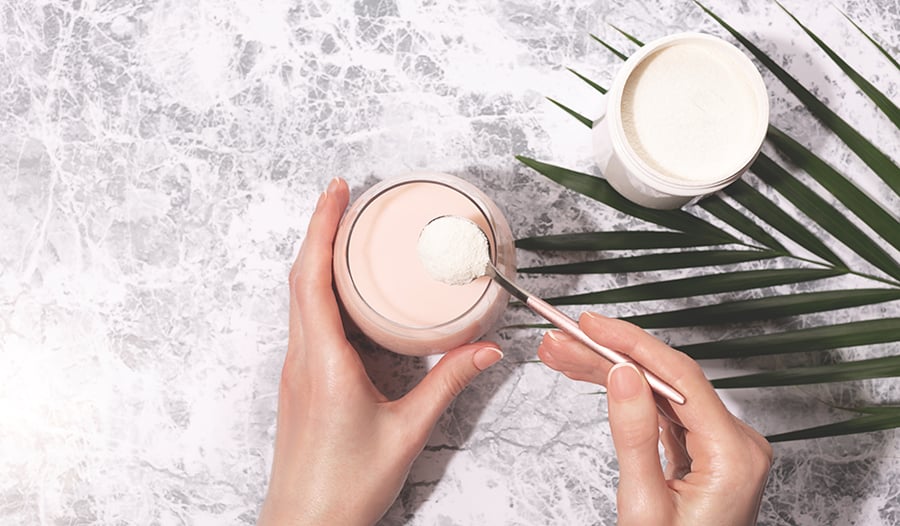Collagen: Types, Benefits, + Tips

What IS Collagen?
Collagen is the most abundant form of protein in your body. It is the primary building block for bones, skin, muscles, tendons, ligaments, and other connective tissues providing strength and support throughout the body. With a healthy diet, your body can build collagen from amino acids found in proteins along with vitamin C, zinc, copper, and manganese. However, as we age, existing collagen breaks down faster than it can be rebuilt by the body.
What Are The Different Types Of Collagen?
With 28 different types of collagen identified, it can become overwhelming to determine which supplement to take. Let’s look at the top three.
- Type I collagen makes up 90% of the collagen and is found head to toe in your body. So when you are considering any supplement, Type I collagen should be part of the formula for more overall support.
- Type II collagen is often found in supplements that support joint health as it’s predominantly found in cartilage.
- Type III collagen is primarily found in muscles, arteries, and organs.
- The other 25 types of collagen are important for other areas of the body but are only required in smaller amounts. When you think about it, 90% of your collagen is Type I, which means the other 10% is split between the other 27 types.
How Can You Increase The Collagen In Your Body?
Of course, eating a well-balanced diet including high-quality protein (providing the building blocks for collagen), getting plenty of exercise and sleep, don’t smoke, wear sunscreen (to protect your skin’s collagen from being broken down by UVB/UVA rays) are all part of supporting collagen production in the body.
Additionally, there are collagen supplements available. However, it is important to note that these supplements should have collagen in a “peptide” form, meaning the collagen molecule has been broken down into a smaller form. The whole form of the collagen molecule can’t be absorbed.
What To Look For In Collagen Supplement Ingredients?
With the overwhelming options in the collagen supplement category, it’s important to know what to look for concerning ingredients.
Look for a collagen supplement that includes clinically researched ingredients like vitamin C, vitamin A, and biotin for optimal results. Vitamin C may help protect skin and helps collagen formation in the dermis layer and vitamin A helps with skin renewal in the epidermis layer. Biotin supports healthy skin, hair, and nails.
References:
- https://my.clevelandclinic.org/health/articles/23089-collagen
- https://nutritionsource.hsph.harvard.edu/collagen/
- Hunt, N. C. (2010). An alginate hydrogel matrix for the localised delivery of a fibroblast/ keratinocyte co-culture to expedite wound healing. https://core.ac.uk/download/75539.pdf
DISCLAIMER:This Wellness Hub does not intend to provide diagnosis...
















































































 Table of Contents
Table of Contents















